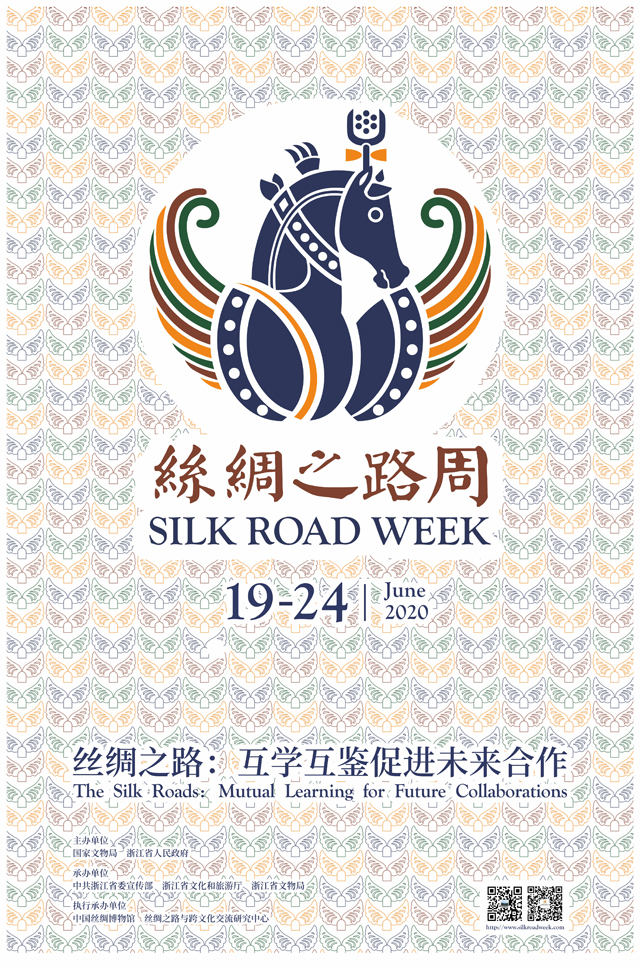
On the morning of May 13, 2020, the press conference of "2020 Silk Road Week" (hereafter, SRW) was held at the China National Silk Museum (hereafter, NSM). Director ZHAO Feng, also the Secretary General of the Academic Committee of SRW, made a detailed introduction of the origin, target, organizational structure and activities.
The idea for an annual "Silk Road Week" was first raised on June 21, 2019, when the International Association for the Study of Silk Road Textiles (IASSRT) and the Chinese Museums Association’s Committee of Museums along the Silk Road jointly proposed the “Hangzhou Initiative for Dissemination and Promotion of the Silk Road Spirit”, which aimed to better recognize and draw on the contents and value of the Silk Road, and to strengthen the protection of the Silk Road sites and relics. The plan for the SRW is that within the week around June 22 each year, museums and other institutions around the world organize activities, including exhibitions, performances, reports, seminars etc, to mark and celebrate the anniversary of the Silk Road - from Chang’an to the Tianshan Corridor - becoming a UNESCO World Heritage location on June 22, 2014.
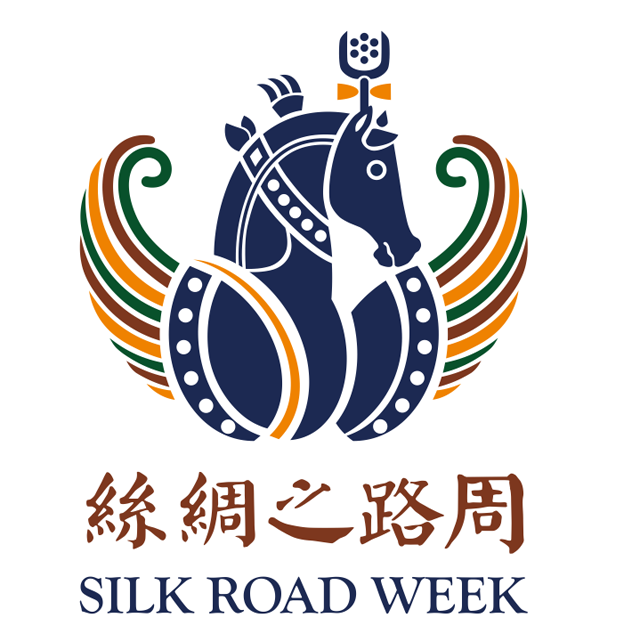
The first SRW will be hosted from June 19 to June 24, 2020 in Hangzhou by the National Cultural Heritage Administration and the People’s Government of Zhejiang Province, on the theme of "The Silk Roads: Mutual Learning for Future Collaborations", which takes its inspiration from the idea that, the surviving remains of the cultural heritage of the Silk Roads tell us that the Silk Roads is a history of global civilization, and when we look back on past collaborations and how we have learned with, and from, each other, we see that this can help us promote mutual cooperation in the future. At this important moment in the shared destiny of human development, in order to construct the defenses of peace in the minds of men, the cultural heritage of the Silk Roads can be an agreed foundation and a starting point for future collaborations.
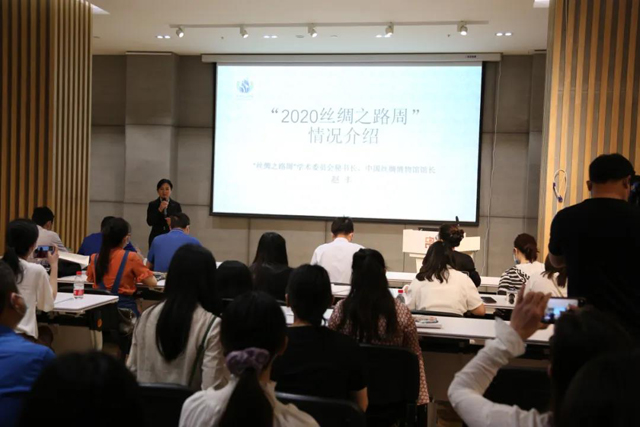
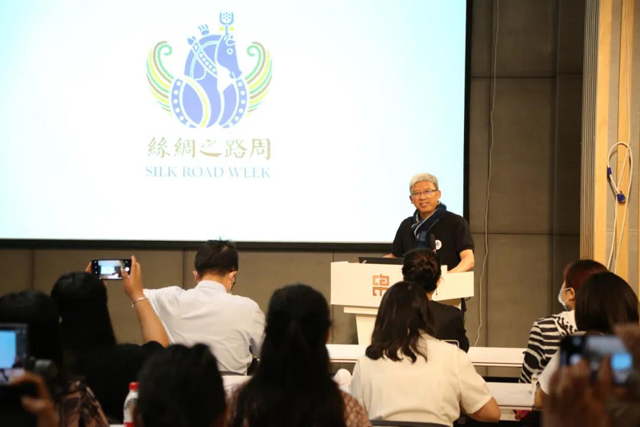
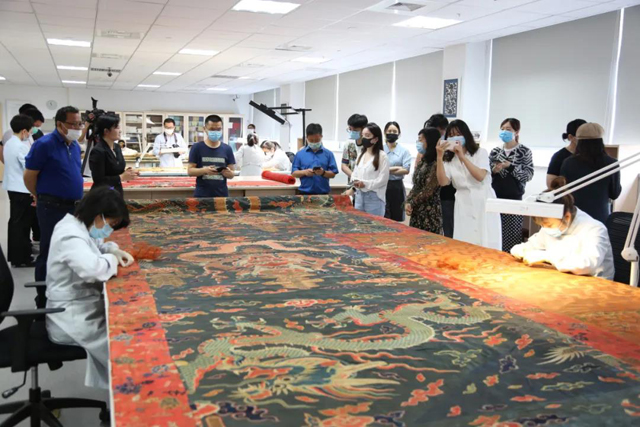
The SRW programme includes the following events:
Temporary exhibition titled "The Silk Roads: before and after Richthofen"
This is an exhibition on the academic history of the Silk Roads. ‘The Silk Road(s)' is in fact a relatively recent term, and for most of their long history, these ancient roads had no particular name. Thus, the Silk Roads can be considered in three parts, the historical facts of the exchange routes between the East and the West; the era in which Ferdinand von Richthofen, the German geologist, named the trade and communication network Die Seidenstrasse(n) [the Silk Road)s] in the mid-nineteenth century; the Silk Road project launched by UNESCO and Silk Road as a World Heritage location. The exhibition is intended to introduce the idea of Silk Road research and its conservation practice, so as to carry forward the connotation of the Silk Road Spirit.
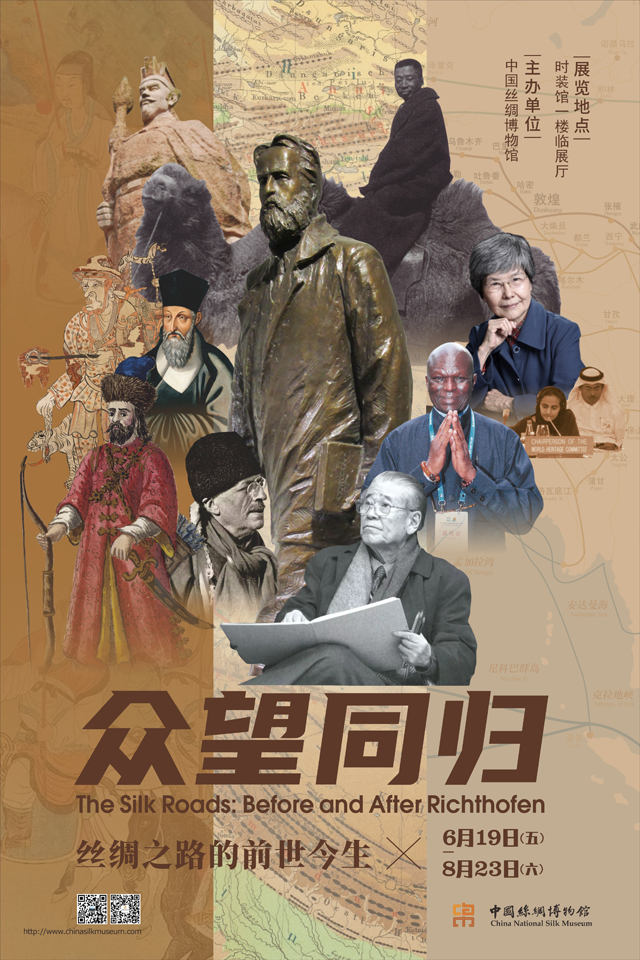
Temporary exhibition titled "Mutual Learning on the Silk Roads: Stories of the Silk Road Treasures"
Through ancient silk routes, Chinese silk, porcelain, lacquerwork and ironware were shipped to the West, while pepper, flax, spices, grape and pomegranate entered China. Through these routes, Buddhism, Islam and Arab astronomy, calendar and medicine found their way to China, while China's four great inventions and silkworm breeding spread to other parts of the world. More importantly, the exchange of goods and know-how spurred new ideas. For example, Buddhism originated in India, blossomed in China and was enriched in Southeast Asia. Confucianism, which was born in China, gained appreciation by European thinkers such as Leibniz and Voltaire. Herein lies the appeal of mutual learning.
Twenty museums or institutions along the Silk Road have been invited to present one object each, and to share its fascinating story.
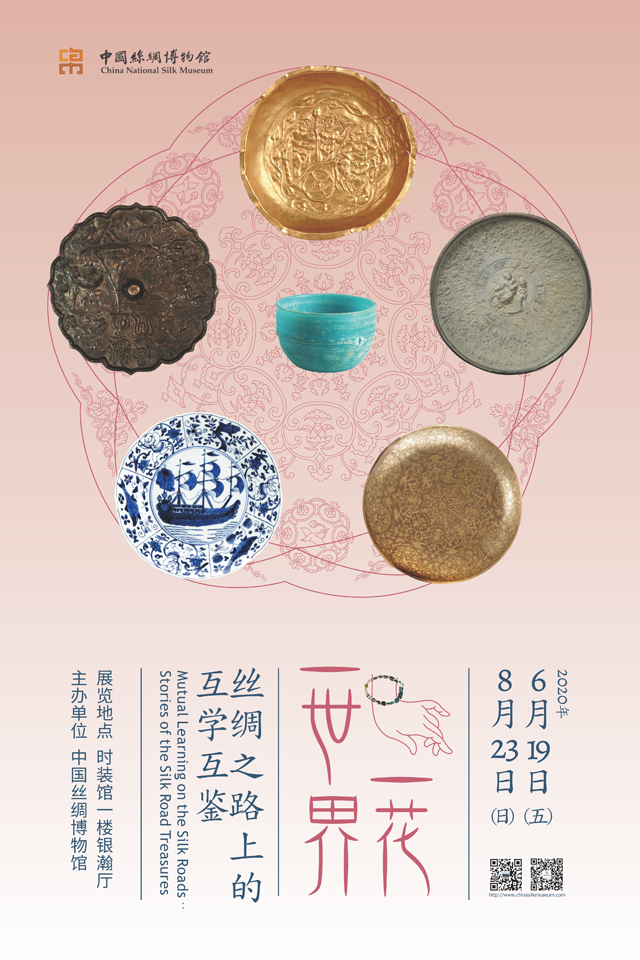
The launch of "Annual Report of Silk Road Cultural Heritage 2019"
This is the most academic content of the SRW,. It will introduce the major events in the field of Silk Road cultural heritage in 2019 in four categories: a comprehensive survey, archaeology, exhibition and academic research, and will select the top ten in each category: cultural events, archaeological discoveries, Silk Road-themed exhibitions and academic publications. To this end, we invited the most famous academic research institution “CNKI” in China to cooperate with foreign counterparts to retrieve and sort the relevant data of the four categories from its global database. We also specially invited experts on the Silk Road experts and s in international museums to review and supplement the relevant contents of the annual report, and to participate in the evaluation of the comprehensive section of the annual report, write comments, and finally form the "Top 10 Recommendations" for the Silk Road cultural heritage.
The official launch of "World Map of Silk Project"
On March 2019, in the framework of the UNESCO Interactive Atlas of Cultural Interactions along the Silk Roads, the Director of NSM and 24 experts from across the world met to discuss the cultural exchanges and mutual influences within textile, clothing and accessories along the Silk Roads.
In this context, NSM and two Chinese universities jointly announced the World Map of Silk Project in 2019. Strongly supported by the “Silk Road Project” of UNESCO, NSM already signed the co-publishing agreement with UNESCO on April 2020.
Led by Chinese scholars, the Project organizes more than 12 international cultural institutions, universities, and museums from the UK, France, Italy, Thailand, Russia, Japan, Korea etc., to build a global silk knowledge model, develop a world silk map space-time information cloud platform, explore the patterns of time and space of the origin, spread and exchange of world silk and develop the demonstration and application of the Silk World Map among the countries along the Silk Road, so as to strengthen the awareness, transmission and influence of silk worldwide.
Museum Curator’s Symposium
In 2020, NSM will hold two exhibitions: The Silk Roads: Before and After Richthofen and Mutual Learning on the Silk Roads: Stories of the Silk Road Treasures which will open on June 19, 2020 and last till August 23, 2020. In conjunction with the exhibitions, NSM will host a three-day seminar on June 20 - 22 that explores different aspects of the Silk Roads such as Silk Road exhibitions, collections, cultural heritage and curating experience.
Associated Activities
At the same time, we encourage museums, institutions and companies along the Silk Road to devise and organize associated activities in the spirit of the SRW. As the global organizer, NSM will keep track of these activities and present information about them to the public, so as to make SRW an international festival and thus promote the Silk Road Spirit widely. The main activities, are mostly online, and include:
1. Live Streaming of Conservation on the Silk Road
Do you want to know how cultural relic conservation teams work every day ? Please follow our Live Streaming of Conservation channel from June 6 to 12, where seven different institutions from China will live stream from their respective conservation studios, so that you can discover the mystery of conservation work.
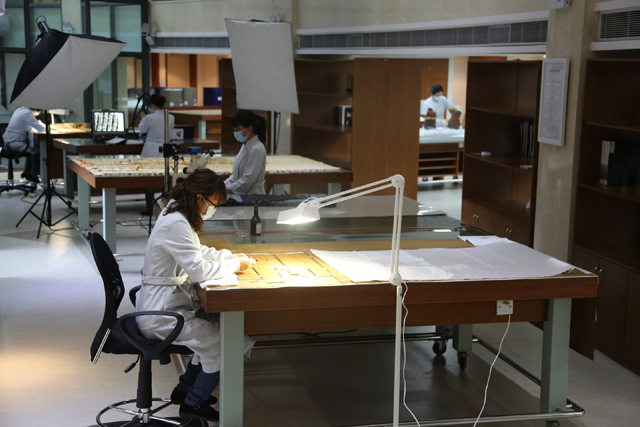
2. Live Streaming of Silk Road Museums
More Live Streaming for you during the SRW will enable you to visit the special exhibitions of 20 museums along the Silk Road in China.
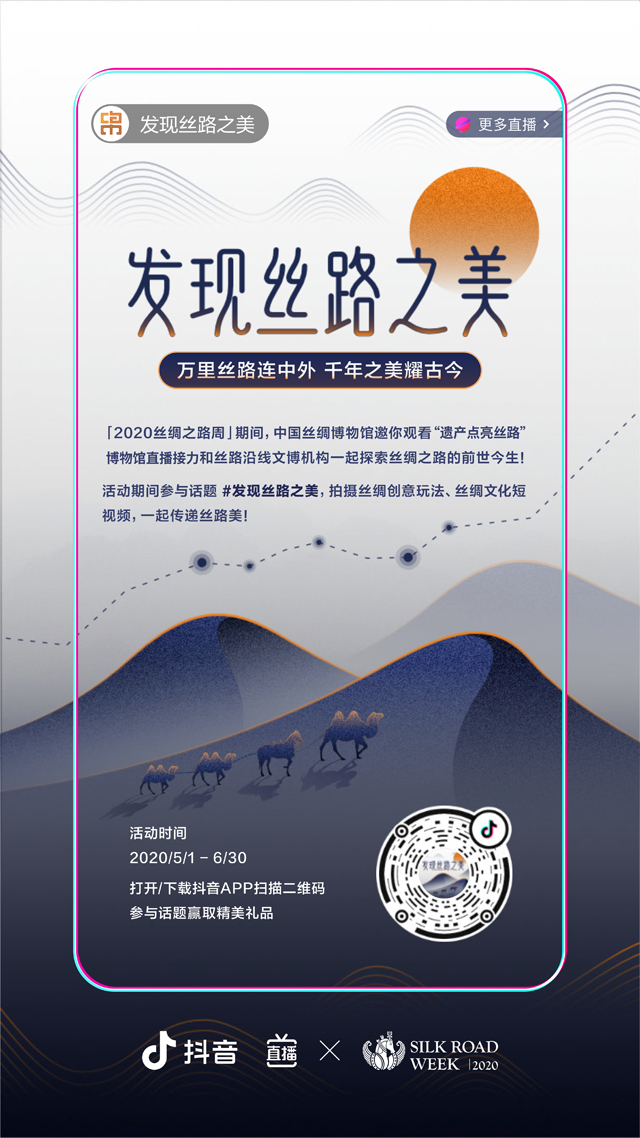
3. Short Videos from 100 Silk Road Museums
100 curators from Silk Road Museums are filming short videos of their cultural relics specially for Silk Road Week.
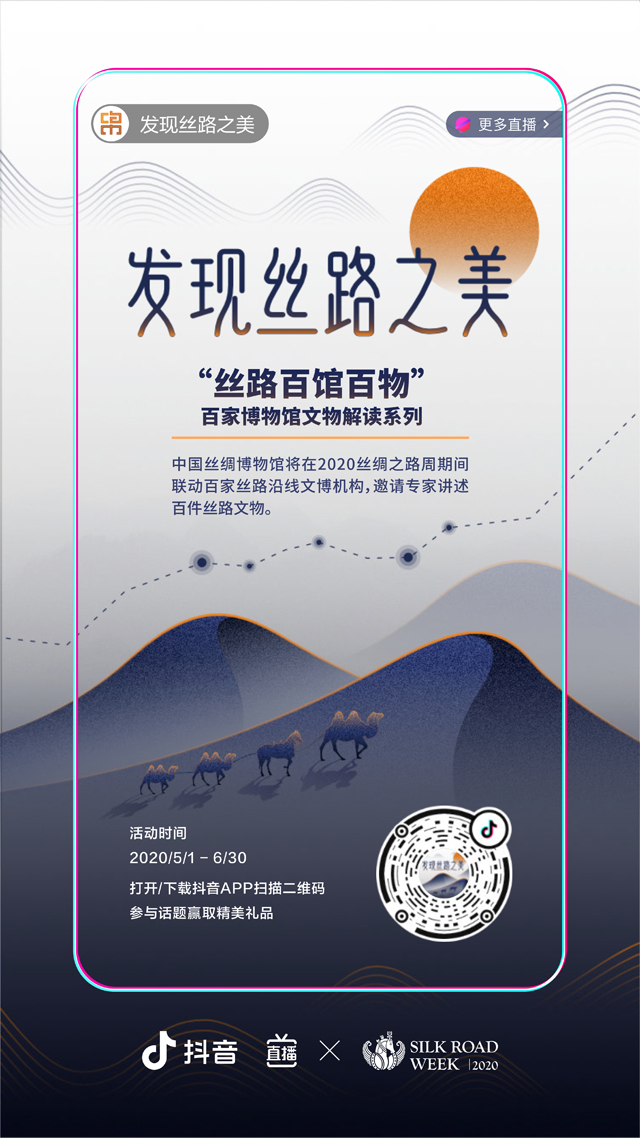
4. Poster Relay
NSW invites one museum in China and museums along the Silk Road to post several photos of its most representative Silk Road objects on social media from May 13 - June 12.
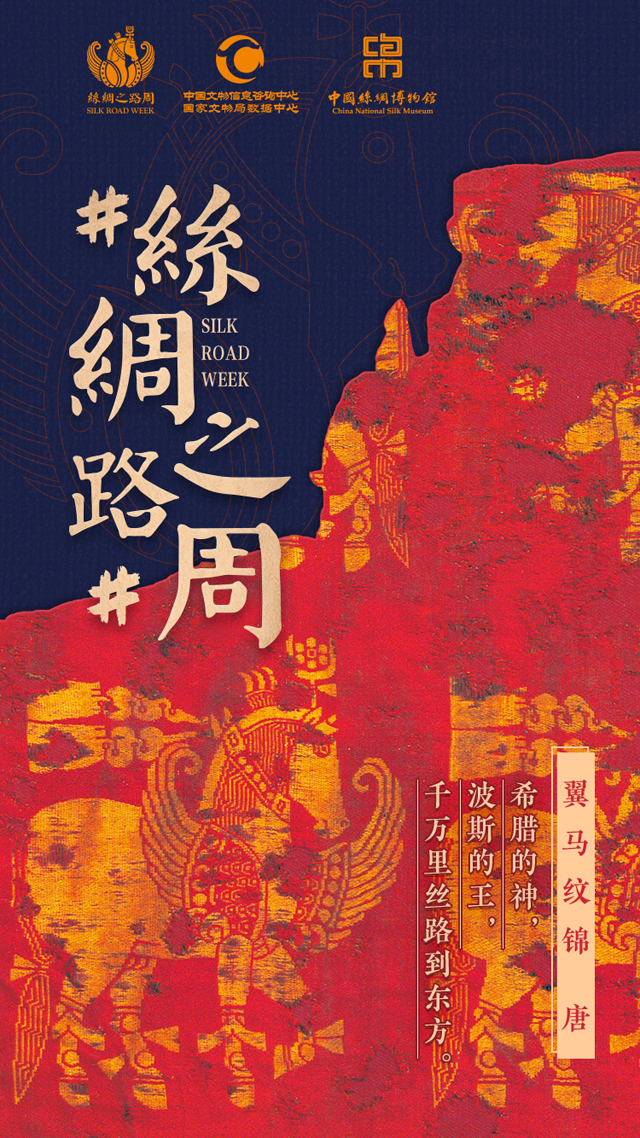
Colouring Activities
Be creative! We have prepared seven different Silk Road patterns for you to colour in. These will be available on our website from May 14.
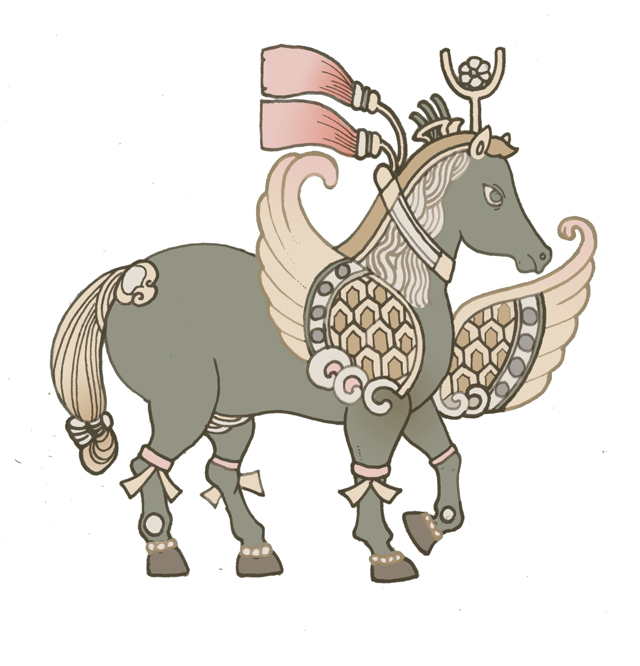
 Pay attention to us
×
Pay attention to us
×